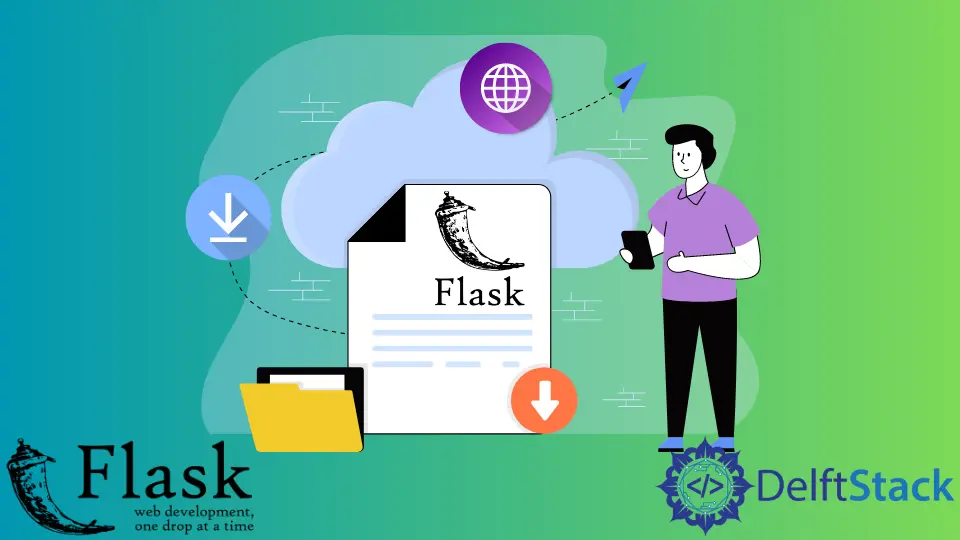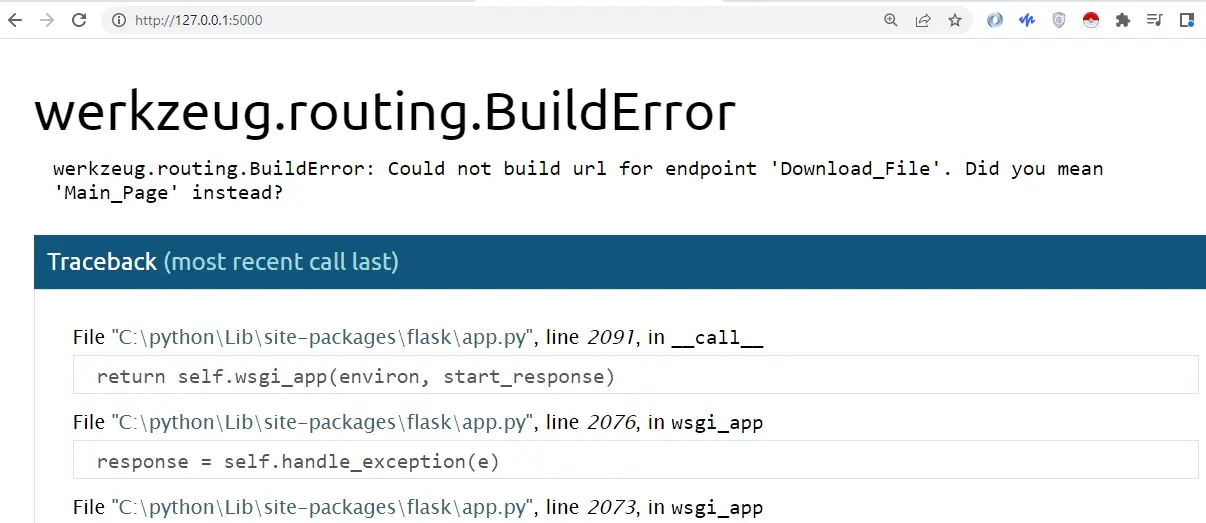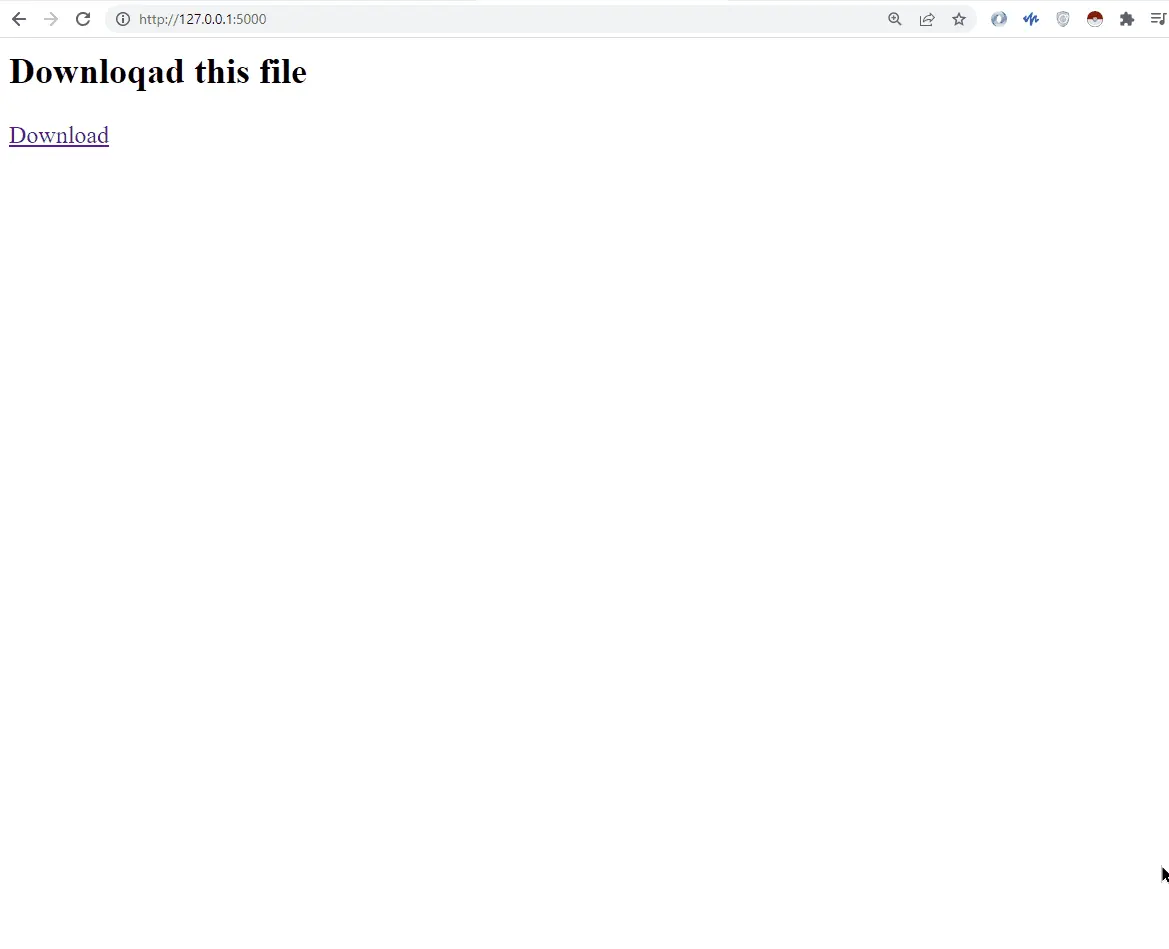使用 Flask 下载文件

通过这个解释,我们将学习如何使用 Flask 中的 send_file 函数创建可下载链接以将文件下载为附件。
在 Flask 的 send_file 函数的帮助下将文件作为附件下载
在 Flask Framework 中,我们可以制作一个文件下载器来下载各种文件,如 PDF、JPEG、MP3 或其他文件,但逻辑保持不变。现在我们只需要转到我们的文本编辑器并在我们的 PNG 文件所在的同一目录中创建一个简单的 app.py 文件。
现在我们还需要创建一个模板文件夹,在其中,我们将创建一个 index.html 文件,就是这样。现在,首先,我们需要导入 Flask 库。
你只需要一些必需的库和 send_file 库:
from flask import Flask, render_template, send_file
我们需要创建一个 app 变量并使用 __name__ 属性初始化 Flask 应用程序。现在我们将初始化我们的主函数,我们只需要在这个块中调用 run 函数并将 debug 等于 True 传递给它,所以每当我们进行更改时它都会重新启动应用程序。
app = Flask(__name__)
if __name__ == "__main__":
app.run(debug=True)
我们必须创建一个路由和一个函数来加载 HTML 文件。为此,我们将创建一个名为 / 的主路由,当我们点击此路由时,它将调用一个名为 Main_Page() 的函数。
该函数返回 render_template();在其中,我们将传递 index.html 文件,该文件将加载存储在 index.html 文件中的模板。
@app.route("/")
def Main_Page():
return render_template("index.html")
现在我们将编写一个基本模板来保存下载的文件。
我们将只使用几个标签,第一个是包含标题的 <h2> 标签,第二个是作为段落标签的 <p> 标签。在这个标签中,我们将使用 anchor 标签,并且 href 属性将等于 url_for 属性,并将其名称传递给它。
<h2>Downloqad this file</h2>
<p> <a href="{{url_for('Download_File')}}">Download</a></p>
如果我们运行这个应用程序并打开 localhost 5000,它会告诉我们它无法为端点 Download_File 构建 URL。

这个语法 url_for('Download_File') 正在寻找一个下载文件,所以我们只需要发出一个 get 请求就可以了。
现在我们将创建另一个路由,/download。我们将创建一个与我们在 url_for() 属性中指定的名称相同的函数。
现在我们需要指定文件的路径,因此我们将创建一个变量,将其命名为 PATH,并将路径存储在该变量中。
我们将使用 send_file() 函数返回文件,该函数有两个参数。第一个是路径,第二个是 as_attachment 等于 True 因为我们希望将可下载文件作为附件。
@app.route("/download")
def Download_File():
PATH = "Flask-logo.png"
send_file(PATH, as_attachment=True)
如果我们保存并刷新页面,我们会看到它被转换为一个超链接,我们可以通过点击这个链接来下载文件。

完整的 Python 代码:
from flask import Flask, render_template, send_file
app = Flask(__name__)
@app.route("/")
def Main_Page():
return render_template("index.html")
@app.route("/download")
def Download_File():
PATH = "Flask-logo.png"
return send_file(PATH, as_attachment=True)
if __name__ == "__main__":
app.run(debug=True)
Hello! I am Salman Bin Mehmood(Baum), a software developer and I help organizations, address complex problems. My expertise lies within back-end, data science and machine learning. I am a lifelong learner, currently working on metaverse, and enrolled in a course building an AI application with python. I love solving problems and developing bug-free software for people. I write content related to python and hot Technologies.
LinkedIn